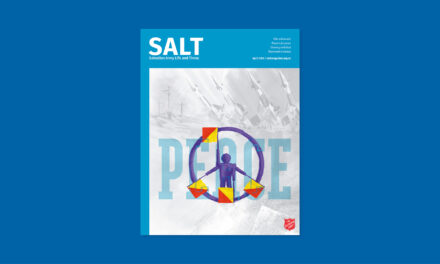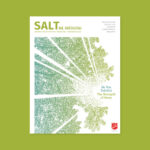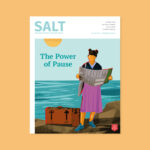
Recalibrating Belief

Why do we believe what we believe about God? How can two people, or two churches, read the same passage of the Bible but come to different conclusions about what it means? To help answer these questions, Lieutenant Jonny Whybrow asks us to consider applying a tool known as the ‘Wesleyan Quadrilateral’.
The Wesleyan Quadrilateral gets its name from the founder of Methodism, John Wesley, who realised that his personal experiences formed a vital aspect of his Christianity (The Salvation Army grew out of Methodism in the 19th century). The quadrilateral gives us a model we can use to explore four important things that shape our faith and beliefs.
Scripture (Bible): how we read and understand the Bible
Tradition: what we have inherited (especially church history)
Reason: the way our thoughts shape our understanding
Experience: our interactions with the world and our spiritual experiences.

While it’s all very well to say that our faith is built upon the Bible, the way we read and interpret the Bible is shaped by the tradition we have inherited, our experiences in the world and our reasoning about how these things interact. To put it simply: our beliefs are formed by more than just the words we read in the Bible.
To give an example, some churches understand the Bible to say that women cannot preach. However, The Salvation Army affirms that women play a full and active role in all aspects of church ministry. This understanding was reached through co-founder Catherine Booth’s reasoning of how the Bible speaks of women and was affirmed through the experiences of people during the Army’s early years. Now, of course, it is very much a proud part of our Salvation Army tradition.
Paradigm shift for the early Church
This year at Whangārei Salvation Army, we are journeying through the story of the early Church in the Book of Acts. A key moment occurs when Peter’s worldview is turned upside down. As a Jew, he had grown up in a world where everything was either understood to be clean or unclean according to the Torah (first five books of the Bible)—which meant, for example, that certain foods were unclean and should not be eaten. It also meant that Jews should not eat at the same table as non-Jews, or even go into their homes. But Peter had a vision where God lowers down a sheet from heaven filled with unclean animals and commands him to kill and eat them. Peter responds, ‘I have never eaten anything impure or unclean’ (Acts 10:14b). And God replies, ‘Do not call anything impure that God has made clean’ (Acts 10:15b).
After Peter sees this vision for the third time, visitors arrive who invite him to travel with them to the house of a Roman centurion, who wasn’t a Jew. Peter travels to this man’s house and when he arrives, he says, ‘You are well aware that it is against our law for a Jew to associate with or visit a Gentile. But God has shown me that I should not call anyone impure or unclean. So when I was sent for, I came without raising any objection. May I ask why you sent for me?’ (Acts 10:28b–29). During his visit, the non-Jews received God’s Holy Spirit and were baptised into the early Church, an event which staggered the Jewish followers of Jesus. Bishop NT Wright says Peter came to understand that because of Jesus, the Old Testament Law was no longer in effect. Instead, it should be seen as ‘God’s word for a particular period and for a particular purpose’.
What if we look at Peter’s belief change through the Wesleyan Quadrilateral? Peter was brought up to understand that Scripture taught he should not go into the house of a non-Jew (tradition). But then he has a vision immediately followed by an invitation to go to the centurion’s house (experience). This leads him to completely change his belief on the way he should interact with non-Jews (reasoning). As a result, the early Church grows and more people come into a relationship with God.
Struggling with belief
On a personal level, I went through a two-year deconstruction of my faith in my early 20s. I had been brought up in The Salvation Army and had been reading the Bible for many years. I had some significant faith experiences along the way as well, and all of these helped form the faith I had by the time I left home. But as I studied engineering and science at university, I was struggling to reconcile my faith with my experiences, my understanding of how science speaks about the world (you can read more about this in a 2019 War Cry article). I wasn’t sure if my belief in God would last.
But through much thought, prayer and reasoning, I came to a place where my belief in God, my understanding of the Bible and my experiences of the world reshaped my faith. It was not the same as when I left home—on reflection, I would say my faith became far deeper because of how it was shaped by my experiences and reasoning.
While the Wesleyan Quadrilateral has its limitations, it can be an extremely useful tool for us to not only examine our own beliefs and go deeper in our faith, but also the beliefs of those around us. It can help us appreciate how someone else has a different view of an aspect of theology, and it can open the door for us to learn more from them. Another important aspect of the quadrilateral is that it speaks of the importance of how all four lenses shape our faith and beliefs today.
If you have ever had an experience which has led you to question your beliefs, I would like to encourage you to keep reflecting on this experience. Talk it through with others. I encourage you to be open to where this journey leads you, even if it seems scary and uncertain.









